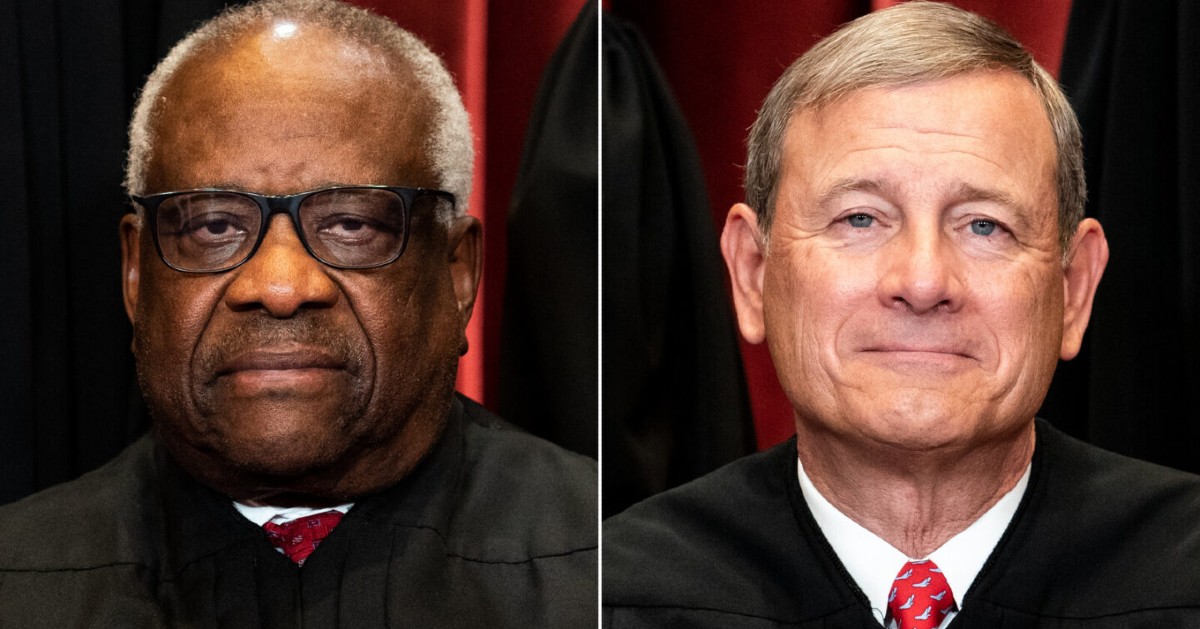OPINION: This article may contain commentary which reflects the author's opinion.
The U.S. Supreme Court issued rulings as expected on Monday, but the awaited decision regarding whether the high court will go through with overturning the landmark 1973 Roe v. Wade decision and send the issue back to states was not one of them.
The decisions issued Monday included: ZF Automotive U. S., Inc. v. Luxshare, Ltd., Denezpi v. United States, Kemp v. United States, a case related to drug and gun crimes, and immigration-related cases Johnson v. Arteaga-Martinez and Garland v. Gonzalez, Fox News reported.
The network added:
The Dobbs case stems from a dispute over a Mississippi law which bans abortion after 15 weeks. Argued in December, the case is seen as the biggest test yet for how the new 6-3 Republican-appointed majority on the court – capped with the confirmation of Justice Amy Coney Barrett in 2020 – will handle major controversial issues.
As the Supreme Court continues to finalize its ruling in Dobbs and several other cases before its summer recess, the investigation into who leaked the draft opinion by court officials is ongoing.
The Supreme Court extends the wait for a decision in the case that could overturn Roe v. Wade https://t.co/cmDOYTB1ON
— Thetrendy24 (@Thetrendynews24) June 13, 2022
The original draft decision, written in February by Justice Samuel Alito, was leaked in an unprecedented manner to POLITICO, which published it in early May.
“The draft opinion is a full-throated, unflinching repudiation of the 1973 decision which guaranteed federal constitutional protections of abortion rights and a subsequent 1992 decision – Planned Parenthood v. Casey – that largely maintained the right,” the outlet reported.
In the “Opinion of the Court,” Alito wrote: “Roe was egregiously wrong from the start.”
“We, therefore, hold the Constitution does not confer a right to abortion. Roe and Casey must be overruled, and the authority to regulate abortion must be returned to the people and their elected representatives,” he added.
POLITICO noted further:
Deliberations on controversial cases have in the past been fluid. Justices can and sometimes do change their votes as draft opinions circulate and major decisions can be subject to multiple drafts and vote-trading, sometimes until just days before a decision is unveiled. The court’s holding will not be final until it is published, likely in the next two months,
The immediate impact of the ruling as drafted in February would be to end a half-century guarantee of federal constitutional protection of abortion rights and allow each state to decide whether to restrict or ban abortion. It’s unclear if there have been subsequent changes to the draft.
No draft decision in the modern history of the court has been disclosed publicly while a case was still pending. The unprecedented revelation is bound to intensify the debate over what was already the most controversial case on the docket this term.
The draft opinion offers an extraordinary window into the justices’ deliberations in one of the most consequential cases before the court in the last five decades. Some court-watchers predicted that the conservative majority would slice away at abortion rights without flatly overturning a 49-year-old precedent. The draft shows that the court is looking to reject Roe’s logic and legal protections.
Chief Justice John Roberts confirmed that the draft opinion was genuine shortly after the leak, while also heavily criticizing the leaker. He also said that the leak won’t affect the outcome of the case.
“To the extent, this betrayal of the confidences of the Court was intended to undermine the integrity of our operations, it will not succeed,” he said in a statement last week. “The work of the Court will not be affected in any way.”
Following the leak, a report said that the majority of justices who signed on to Alito’s decision had not changed their minds.
The Washington Post, citing conservative sources within the court, reported that the four justices who agreed with Alito’s opinion — Clarence Thomas, Neil Gorsuch, Brett Kavanaugh, and Amy Coney Barrett — had thus far refused to change their minds.
It’s not clear if any of those justices changed their view in the ensuing weeks, though most court observers don’t think that was likely to happen.
